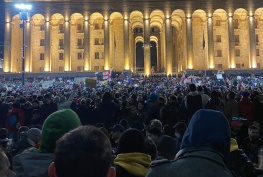BY HARRY MISIKO
I appreciate why American media digs deeper and offers more to its readers, listeners and viewers compared to Kenyan and African news channels.
U.S. federal and state governments have enacted laws that do not only promote but also safeguard media’s access to information.
The Freedom of Information Act (FOIA), for instance, allows for the full or partial disclosure of previously unreleased information and documents controlled by the US government.
The federal freedom of information law signed by President Lyndon Johnson in 1966 defines agency records subject to disclosure, outlines mandatory disclosure procedures, and grants nine exemptions to the statute.
I must point out that it has not only granted U.S .scribes greater access to information — but also made their work easier and safer.
But I was frozen in my tracks by FOIA’s exemption number four, which restricts access to trade secrets and proprietary information, while investigating a shady deal between the Kenyan government and The Smithsonian Institution during this year’s Smithsonian Folklife Festival.
The Smithsonian used the exemption to refuse me information about how much Kenyan government officials minted out of the iffy deal. I still managed to write and publish the story, though. (Link: http://www.nation.co.ke/news/Sculpture-saga-dampens-show/-/1056/2374360/-/i2ovhjz/-/index.html)
The other law that has boosted the practice of journalism in the U.S. is Public Access to Court Electronic Records (PACER)l egistation that grants access to case and docket information from district courts, courts of appeal and bankruptcy courts.
I saw the benefits of PACER when I used it to dig up cases facing Kenyan diplomats over alleged enslavement and maltreatment of countrywomen who were working as their domestic workers.
The details of those cases had never been covered by a Kenyan media outlet, courtesy of lack of access to such information.
Based on this experience, I believe Kenyan and African media can offer more if governments did away with laws that restrict access to public records such as the Official Secrets Act— a draconian, colonial relic that has seen many African governments steeped in secrecy.
Kenya’s Constitution enacted in 2010 weakened that restrictive law but government officials still get fidgety releasing information to the public and the Media. Old habits, indeed, die hard.
The irony is that most governments that have retained that law claim to have ratified Article 19 of the African Commission on Human and People’s Rights.
The article states that “every person has the right to information”, and that “public bodies hold information not for themselves but as custodians of the public good and everyone has the right to access it”.




